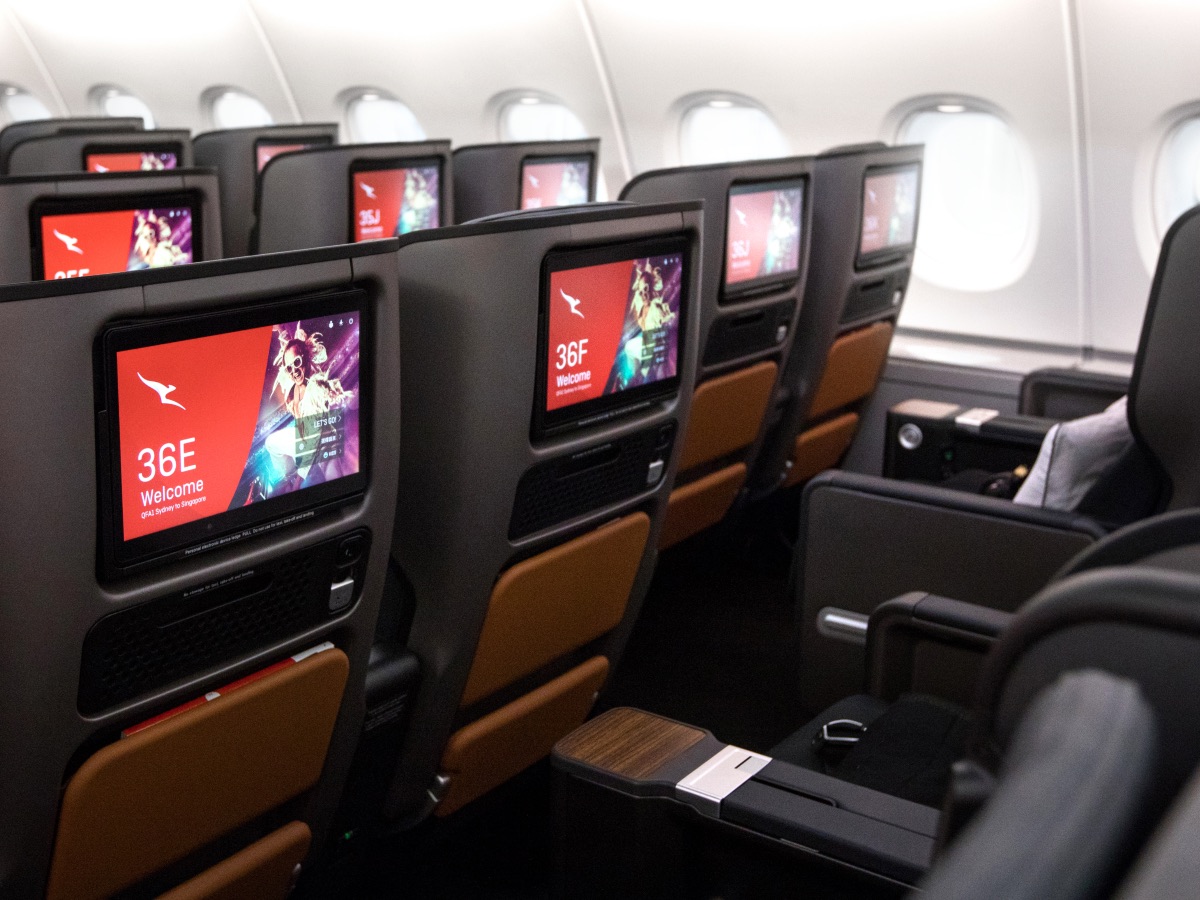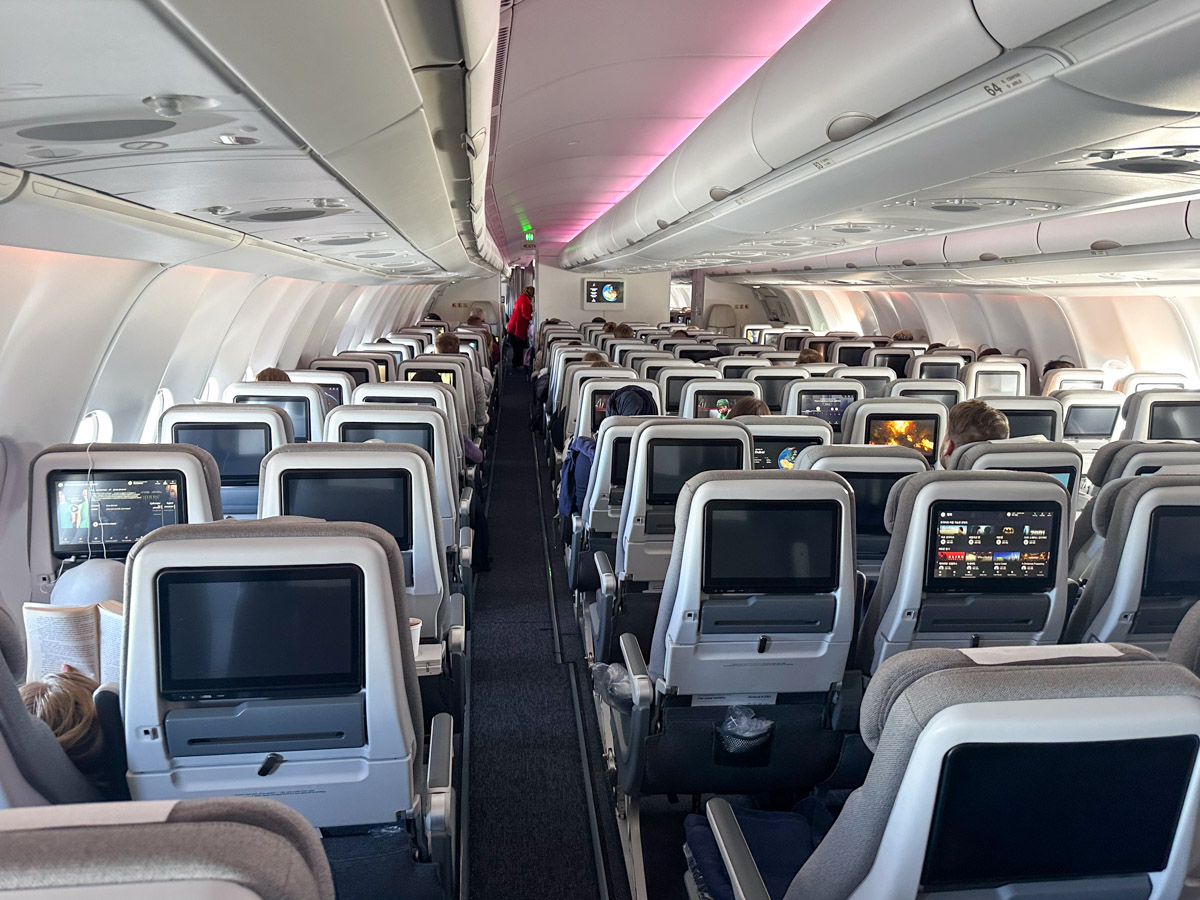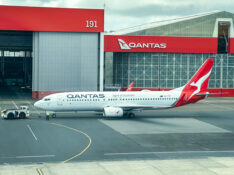Should Qantas Have a Minimum Reward Seat Guarantee?

Many Qantas Frequent Flyer members say they struggle to find Classic Reward seats on flights they want. To help it overcome the perception that there isn’t enough availability, some have suggested that Qantas should release a guaranteed minimum number of Classic Reward seats on every flight.
This concept isn’t new. British Airways and Finnair currently guarantee a certain number of reward seats on each flight. Virgin Atlantic also used to do the same, before it moved to dynamic reward pricing.
I’m not suggesting that Qantas is actively considering a minimum reward seat guarantee. But it’s worth asking the question: Would it really be a good idea for Qantas to do the same? This article explores the pros and cons…
Reward seat guarantees at other airlines
To give you an idea of how a reward seat guarantee could work at Qantas Frequent Flyer, let’s have a look at how other airlines currently do it.
Finnair reward seat guarantee
Finnair is one example of an airline that already does this. Since 2024, Finnair guarantees that on every one of its flights it will release at least:
- 4x Economy reward seats
- 2x Premium Economy reward seats (on long-haul routes with Finnair Premium Economy)
- 2x Business Class reward seats

British Airways reward seat guarantee
Similarly, British Airways guarantees that it will release at least the following amounts of reward seats on each of its flights:
- 8 Economy
- 2 Premium Economy (where available)
- 4 Business Class
Interestingly, British Airways’ implementation of this is a bit different to Finnair’s as these guaranteed seats are only available for British Airways Club members to book.
British Airways may release even more reward seats on a given flight, and if so, they will be available for members of partner programs (such as Qantas Frequent Flyer) to book. However, the last 8 Economy, 2 Premium Economy and 4 Business reward seats on every flight are reserved specifically for bookings with British Airways Avios.

British Airways does not guarantee a specific number of First Class redemption seats.
Virgin Australia’s Economy Reward seat guarantee
Velocity Frequent Flyer also has a reward seat guarantee of its own, but it works in a completely different way.
Once per year, Velocity Platinum members can request up to four return Economy Reward Seats to any Virgin Australia destination (excluding Doha, Cocos Islands & Christmas Island). It’s designed to be used for an annual family holiday.

However, this must be booked at least six months in advance and cannot be used for Business Class bookings. Virgin also reserves the right to send you within a day either side of your requested travel dates for domestic bookings, or three days either side for international bookings.
Virgin Australia also currently offers this benefit to Gold frequent flyers, to use on domestic bookings, but will remove it as part of the Velocity Frequent Flyer changes later this year.
Arguments for a reward seat guarantee
So, should Qantas follow the lead of British Airways and Finnair in guaranteeing a minimum number of seats at fixed Classic Flight Reward pricing on every departure?
A great marketing tagline
Well, for starters, it’s a great marketing tagline! Qantas would legitimately be able to say that it’s done something practical to make it easier for members to get great value from their points, by ensuring there are fixed-price seats on every single flight.
In the past, Qantas has heavily marketed its “Points Planes” which had every seat available to book as Classic Rewards. These were mainly publicity stunts to launch new routes or fill positioning flights that would have otherwise gone out half-empty, but Qantas still got plenty of good PR!
Higher member satisfaction
By providing more (and more predictable) access to award inventory, Qantas Frequent Flyer should see an increase in member satisfaction and engagement.
As Qantas often tells its shareholders, when members are able to use their points on rewards that they value, they’re motivated to engage even more with the program going forward. In turn, Qantas makes more money from selling points to program partners, and so on.
What might this look like?
Qantas doesn’t have to go crazy to earn goodwill from members. Even just guaranteeing something like 4 Economy, 2 Premium Economy and 2 Business seats at Classic Reward levels, as soon as every flight goes on sale, would be a welcome improvement.
Of course, Qantas would be free to offer even more Classic Reward seats if it wanted to. The guaranteed amounts would just be a minimum threshold.
This doesn’t mean there would always be a seat available to book on every flight. Once people have booked the guaranteed seats, Qantas doesn’t necessarily have to release any more.
If Qantas wanted to do this, they could implement it tomorrow. After all, they control the supply of seats on their own flights!

Arguments against a reward seat guarantee
So, there are some good reasons why airlines might choose to release a minimum amount of reward seats on every flight. But there are equally arguments against it.
The opportunity cost of spilling high yield customers
Ultimately, the reason why airlines limit the supply of reward inventory is core to the frequent flyer program business model. While there is limited marginal cost to an airline in “giving away” a redemption seat, there is a high opportunity cost if the airline could have sold it to a full fare-paying passenger. This is known in the industry as “high yield spill”.
Nowadays, airlines are reluctant to release too many reward seats a year in advance because they don’t yet know how much demand there will be for that flight. They don’t want to risk filling too many seats with “low yield” passengers if they could sell all the seats at full price.
This is why Qantas has stopped releasing Classic Reward seats at the initial release date in Business and First Class on its most popular long-haul international flights. You’ll now rarely find Business Classic Reward seats on QF1 to London because Qantas is selling those seats for cold hard cash.

Of course, the airline isn’t really “giving away” a seat when a frequent flyer uses points to book it. That frequent flyer is still paying the third-party taxes, and the airline collects any carrier charges. The program also made money when this frequent flyer acquired their points.
Ultimately, the program needs to offer a compelling loyalty proposition to remain profitable. But this is harder to measure than the opportunity cost of not selling a seat at full fare.
The problem of making releases too predictable
While savvy frequent flyers would likely benefit from more predictable and reliable reward seat releases, this also comes with a risk. Those savvy enough to book at the exact release time could end up taking all the best seats within minutes of them becoming available. This wouldn’t leave much for people who aren’t as savvy with their points, nor people who don’t plan their travel a year out.
Then again, with the amount of tools and services out there nowadays that track availability and send alerts when seats get released, you’d already have to be pretty savvy to access the best seats anyway.
Should such a guarantee only be for frequent flyers with status?
Like Velocity, Qantas could restrict any type of reward seat guarantee to frequent flyers with a high status tier. Many would argue that this is reasonable because it reserves the benefit for customers who have themselves demonstrated loyalty to the airline, rather than opening the floodgates for all and sundry.
Qantas does already restrict access to the (nowadays very few) long-haul premium cabin reward seats released 353 days out from departure to Gold, Platinum and Platinum One frequent flyers.

The airline does also currently make it easier for Platinum and Platinum One members to access Classic Reward seats on the flights they want by allowing them to request extra seats. This is a great, unpublished benefit for Qantas’ most frequent flyers. However, it’s still not a “guarantee” as Qantas can (and sometimes does) reject these requests.
This is only good marketing if the reward price is also guaranteed
Remember how I said at the start of this article that Virgin Atlantic also used to promise a minimum number of redemption seats on every flight? It removed this in 2024 because it instead moved to fully dynamic reward seat pricing.
In doing so, Virgin Atlantic argued that it didn’t need this guarantee any more because every seat could now be booked using Virgin Points. That may be so, but it made the program much less appealing to those who want to get value for their points. Sure, every seat is now available… but the pricing fluctuates massively.

Qantas Frequent Flyer has already tried to address its availability problem by introducing dynamically-priced Classic Plus redemptions. This has been somewhat successful for Qantas, but a lot of frequent flyers still lament the lack of fixed-price Classic seats.
It would be fairly easy for Qantas to just make every seat available as a Classic Plus redemption, but this isn’t really what people are asking for.
A reward guarantee also wouldn’t work if the airline added lots of exceptions. There wouldn’t be much point of a reward seat guarantee that has blackout dates and can’t be used to fly to London, Bangkok or New York, for example.
Share your thoughts on the AFF forum
What do you think – should Qantas guarantee a minimum number of reward seats on every flight? Why or why not?
Share your thoughts on our discussion forum!



Community Comments
Loading new replies...
Join the full discussion at the Australian Frequent Flyer →